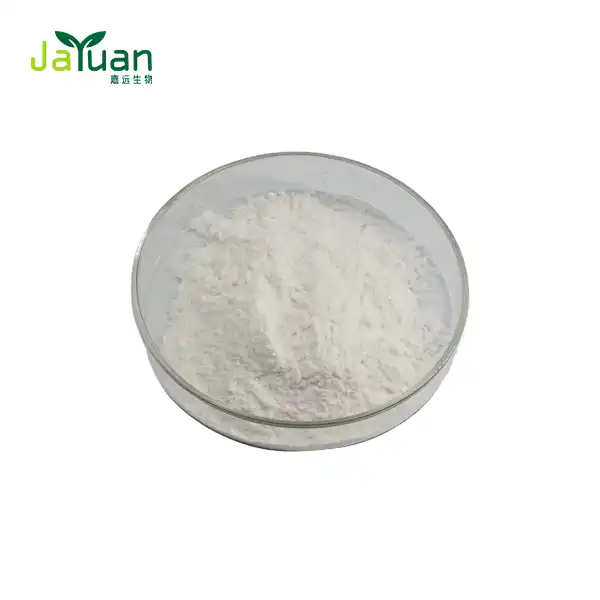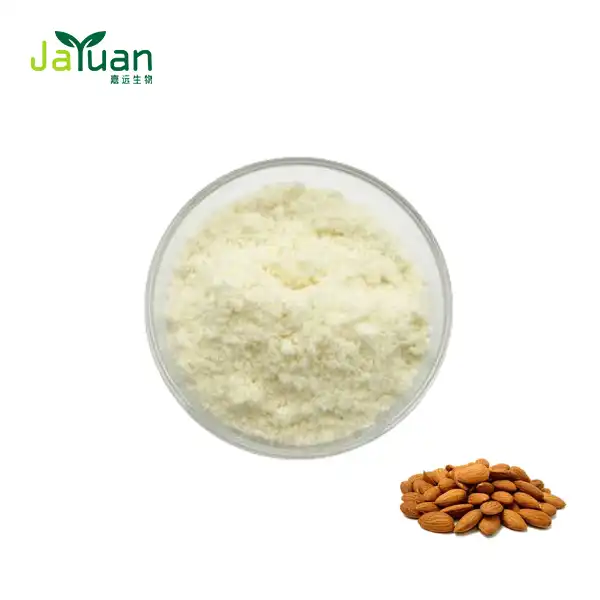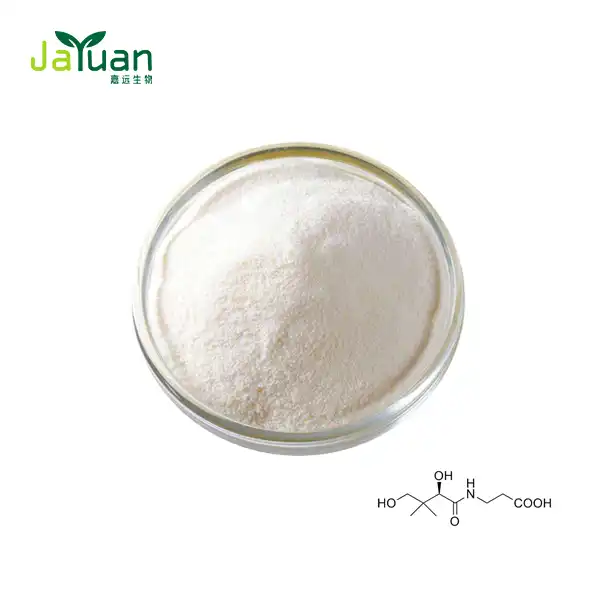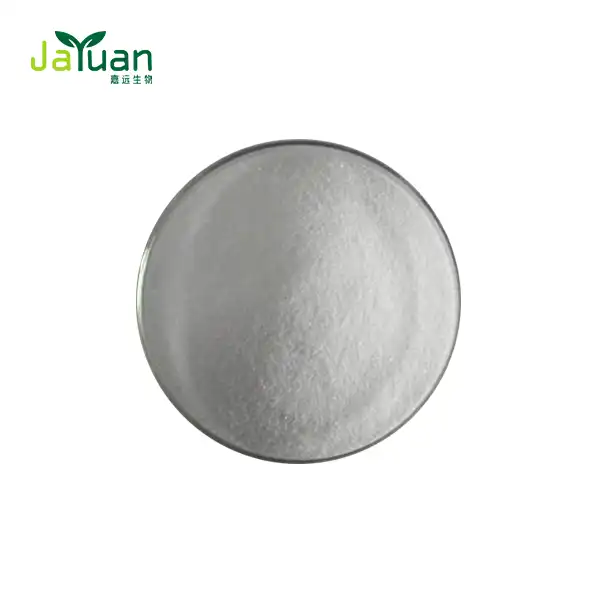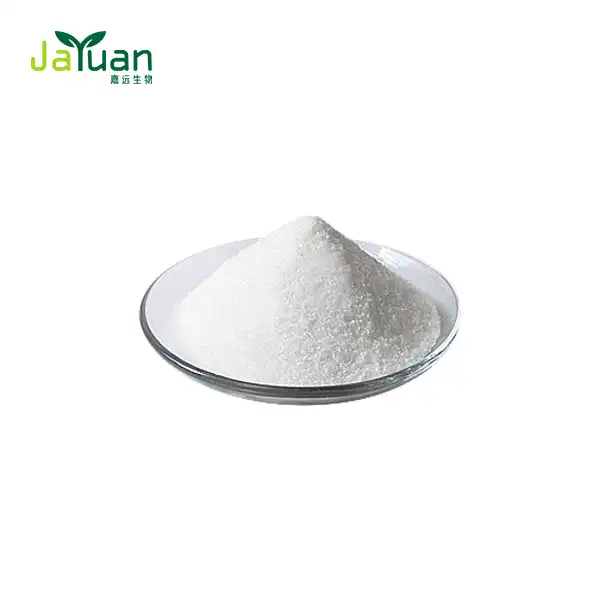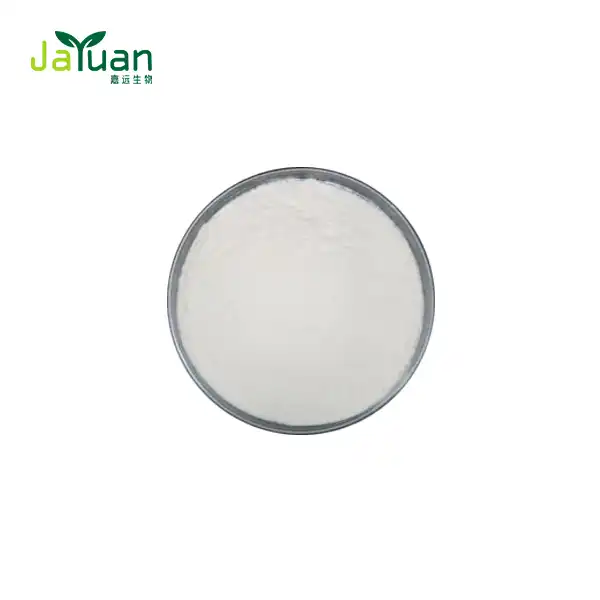How are Rice Protein Peptides used in supplements?
Rice protein peptides have gained significant traction in the world of nutritional supplements, offering a plant-based alternative to traditional protein sources. These peptides, derived from rice protein through a process of hydrolysis, are becoming increasingly popular due to their unique properties and potential health benefits. In this comprehensive guide, we'll explore how they are utilized in various supplements and why they're becoming a go-to choice for many manufacturers and consumers alike.

Product Name: Rice Protein Peptide Powder
Appearance: White or light yellow powder
Odor: It has a light aroma unique to rice protein, without any off flavors
Solubility: soluble in water, clear or slightly turbid solution
Moisture content: ≤ 6%
Ash content: ≤ 5%
Protein content (dry basis): ≥ 80%~90% (high-purity products can reach over 95%)
Fat content: ≤ 1%
Total sugar content: ≤ 2%
Certification: ISO9001/Kosher/Organic/halal/IFS/BRC/COSMOS
Sample: Availiable
Delivery terms: FedEx, DHL, EMS, UPS, TNT, all kinds of the airline, international shipping companies.
Free sample is available.
We do not sell retail quantities to individuals.
What types of supplements commonly contain them?
They are versatile ingredients that find their way into a wide array of nutritional supplements. Let's delve into some of the most common types:
Protein Powders and Meal Replacements
One of the primary uses of it is in protein supplements and meal replacement shakes. These products cater to individuals looking to increase their protein intake, support muscle growth, or manage their weight. They are particularly appealing in this context due to their high digestibility and hypoallergenic nature.
Sports Nutrition Products
Athletes and fitness enthusiasts often turn to supplements containing them to support their performance and recovery. These may include pre-workout formulas, post-workout recovery drinks, and endurance-enhancing supplements. The rapid absorption rate of rice peptides makes them an excellent choice for quick nutrient delivery during or after physical activity.
Vegan and Plant-Based Supplements
As the demand for plant-based products continues to rise, they have become a staple in vegan nutritional supplements. They offer a complete amino acid profile when combined with other plant proteins, making them an ideal choice for those following a plant-based lifestyle.
Beauty and Wellness Supplements
They are not limited to muscle-building supplements. They're also found in beauty and wellness products aimed at promoting skin health, hair growth, and overall vitality. These supplements often combine rice peptides with other nutrients to create comprehensive formulations for holistic health.
Why manufacturers choose rice peptides over whole rice protein?
The decision to use them instead of whole rice protein is not arbitrary. Manufacturers have several compelling reasons for this choice:
Enhanced Absorption and Bioavailability
One of the primary advantages of rice protein peptides is their superior absorption rate. The hydrolysis process breaks down the protein into smaller peptide chains, making it easier for the body to absorb and utilize the amino acids. This increased bioavailability means that consumers can potentially benefit more from the same amount of protein compared to whole rice protein.
Improved Digestibility
They are generally easier on the digestive system than whole proteins. This makes them an excellent option for individuals with sensitive stomachs or those who experience digestive discomfort with other protein sources. The reduced digestive burden also means that the body can allocate more energy to other processes, potentially enhancing overall well-being.
Versatility in Formulations
They offer greater flexibility in supplement formulations. Their smaller molecular size allows for better mixing and a smoother texture in powders and liquids. This versatility enables manufacturers to create a wider range of products, from clear protein drinks to creamy shakes, without compromising on taste or texture.
Potential for Targeted Benefits
Some research suggests that specific peptide sequences derived from rice protein may have unique biological activities. These could include antioxidant properties, immune system support, or even potential cardiovascular benefits. While more research is needed to fully understand these effects, the possibility of targeted health benefits makes rice peptides an attractive option for innovative supplement formulations.
How to identify high-quality rice peptide supplements?
With the increasing popularity of rice protein peptide supplements, it's crucial to know how to distinguish high-quality products from subpar ones. Here are some key factors to consider:
Certification and Testing
Look for supplements that have been third-party tested and certified. Reputable manufacturers often have their products tested for purity, potency, and contaminants. Certifications from organizations like NSF International or Informed-Choice can provide additional assurance of quality.
Transparency in Sourcing and Processing
High-quality rice peptide supplements should provide information about the source of their rice protein and the hydrolysis process used to create the peptides. Look for brands that are transparent about their manufacturing practices and use clean, sustainable sourcing methods.
Amino Acid Profile
A superior rice protein peptide powder should offer a complete amino acid profile. While rice protein is naturally low in lysine, many high-quality supplements will fortify their products with additional amino acids or combine rice peptides with other plant proteins to create a more balanced profile.
Absence of Unnecessary Additives
The best rice peptide supplements will have a clean ingredient list, free from unnecessary fillers, artificial colors, or sweeteners. Be wary of products that contain a long list of unrecognizable ingredients.
Digestibility and Absorption Claims
Look for supplements that provide information on the molecular weight of their peptides or make claims about enhanced digestibility and absorption. These factors can indicate a higher-quality product designed for optimal nutrient utilization.
Customer Reviews and Brand Reputation
While not a definitive measure of quality, customer reviews and overall brand reputation can provide insights into the effectiveness and consistency of a rice peptide supplement. Look for brands with a track record of satisfied customers and positive feedback.
Rice protein peptides represent a significant advancement in plant-based protein supplementation. Their enhanced absorption, digestibility, and potential for targeted benefits make them an attractive option for both manufacturers and consumers. As the supplement industry continues to evolve, we can expect to see even more innovative uses for these versatile peptides.
Whether you're an athlete looking to optimize your performance, a vegan seeking complete protein sources, or simply someone interested in exploring new nutritional options, they offer a promising avenue for supporting your health and wellness goals. As with any supplement, it's essential to choose high-quality products and consult with a healthcare professional to determine the best approach for your individual needs.
The world of them is ripe with potential, and as research continues to uncover new benefits and applications, we may see these humble rice-derived compounds play an increasingly important role in the future of nutrition and health supplementation.
If you're interested in learning more about them or exploring high-quality supplement ingredients, we invite you to reach out to our team at Xi'an Jiayuan Bio-Tech. Our experts are ready to answer your questions and help you find the perfect solutions for your supplement formulations. Contact us at sales@jayuanbio.com and sales1@jayuanbio.com to discover how they can elevate your products and meet the evolving demands of health-conscious consumers.
References
1. Journal of Nutritional Science and Vitaminology: "Nutritional and Physiological Effects of Rice Protein Hydrolysates in Human Subjects"
2. Food Chemistry: "Antioxidant activity of rice protein hydrolysates in bulk oil and oil-in-water emulsion"
3. Journal of Food Science and Technology: "Rice protein: extraction, composition, applications, and future perspectives"
4. Nutrients: "Plant Proteins: Assessing Their Nutritional Quality and Effects on Health and Physical Function"
5. Food Research International: "Rice proteins and rice protein hydrolysates: production, application, and health benefits"
6. International Journal of Molecular Sciences: "Rice Proteins and Their Bioactive Peptides: A Review"

